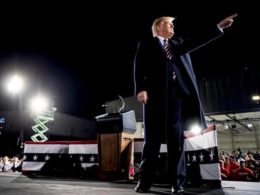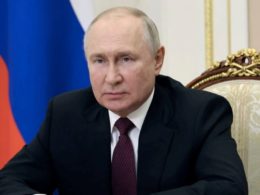The United States and the European Union have imposed coordinated sanctions on Russia's energy sector on 22-23 October 2025, targeting the Kremlin's energy revenues in a renewed push to halt its war in Ukraine, drawing defiant claims of immunity from Moscow and skeptical retorts from Washington.
This coordinated action marks the West's most significant attempt to cripple Russia's war economy by choking its primary oil and gas revenues, directly testing the limits of Moscow's economic resilience amid contrasting signals from Presidents Putin and Trump about the sanctions' impact.
Yesterday's friends turned adversaries?
The coordinated sanctions drew sharply contrasting public reactions from Moscow and Washington. While Russian President Putin projected confidence from Moscow on 23 October, acknowledging the new measures but insisting they wouldn't cripple the Russian economy, US President Donald Trump adopted a more skeptical, wait-and-see stance from the White House.
"The measures are serious, but... won't significantly hit the economy," Putin stated, calling the US move an "unfriendly act," according to The Moscow Times.
Questioned about Putin's assessment later the same day at the White House event, President Trump responded, "...I'm glad he feels that way... That's good." He then added, "I'll let you know about it in six months from now. Okay. Let's see. Let's see how it all works out."
How the US is targeting Russian oil
The first move came on 22 October 2025, when the US Treasury Department named Russia's two largest oil companies, state-owned Rosneft and privately-held Lukoil, as Specially Designated Nationals (SDNs). This designation effectively freezes any assets the companies hold within US jurisdiction and prohibits US citizens and entities from engaging in any transactions with them.
The restrictions, analysts said, could further weaken Russia’s already stressed economy and “hinder its capacity to continue bankrolling the war.” The designation not only blocks all US persons from dealings with the firms but also exposes non-US entities to powerful secondary sanctions. Foreign banks, traders, or companies risk penalties, including potential loss of access to the US financial system, if they facilitate significant transactions with Rosneft or Lukoil. This pressure is aimed squarely at Russia's key customers in China and India.
How the EU's 19th package aligns
Less than 24 hours later, the European Union adopted its 19th sanctions package on 23 October, which was explicitly designed to complement the US action. This package closes major loopholes Russia has used to fund its war effort.
Key measures from the combined US and EU actions include:
- Phased-in LNG Ban: The EU will ban all imports of Russian Liquefied Natural Gas (LNG), a key revenue source previously left untouched.
- Shadow Fleet Crackdown: The EU blacklisted another 117 vessels (bringing the total to 557) used in Russia's "shadow fleet," banning them from EU ports and services.
- Financial Loopholes: For the first time, the EU is targeting cryptocurrency, specifically sanctioning the rouble-backed stablecoin A7A5 and its developer.
- Third-Country Entities: Both the US and EU are targeting entities that help Russia, including banks in Central Asia and refineries in China.
Potential impact of sanctions on Russia's energy sector
Western officials framed the coordinated package as a decisive blow. The strategic goal is to starve the Kremlin of the energy profits that have allowed it to sustain its war effort despite previous restrictions.
"Given President Putin's refusal to end this senseless war, Treasury is sanctioning Russia's two largest oil companies that fund the Kremlin's war machine," said US Treasury Secretary Scott Bessent in a statement.
European leaders echoed this sentiment. "...we are deploying a very wide range of additional measures to weaken Russia's faltering economy even further. A ban on LNG will hit where it hurts most..." said Maria Luís Albuquerque, Commissioner for Financial Services and the Savings and Investments Union.
Lithuanian President Gitanas Nauseda, a vocal critic of Moscow, was more blunt, calling the US penalties "a game changer... a very strong blow to the Russian economy."
The full impact of these new sanctions on Russia's energy sector remains to be seen, but the coordinated effort marks a significant escalation.
Related:





